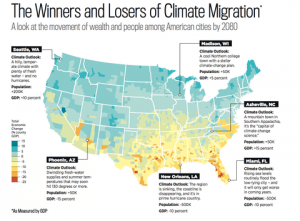
Adam Serwer offers a corrective on a corrosive: the use of tribalism. You mean racism:
It’s fashionable in the Donald Trump era to decry political “tribalism,” especially if you’re a conservative attempting to criticize Trump without incurring the wrath of his supporters. House Speaker Paul Ryan has lamented the “tribalism” of American politics. Arizona Senator Jeff Flake has said that “tribalism is ruining us.” Nebraska Senator Ben Sasse has written a book warning that “partisan tribalism is statistically higher than at any point since the Civil War.”
In the fallout from Tuesday’s midterm elections, many political analysts have concluded that blue America and red America are ever more divided, ever more at each other’s throats. But calling this “tribalism” is misleading, because only one side of this divide remotely resembles a coalition based on ethnic and religious lines, and only one side has committed itself to a political strategy that relies on stoking hatred and fear of the other. By diagnosing America’s problem as tribalism, chin-stroking pundits and their sorrowful semi-Trumpist counterparts in Congress have hidden the actual problem in American politics behind a weird euphemism.
Take Tuesday’s midterm elections. In New York’s Nineteenth Congressional District, the Democrat Antonio Delgado, a Harvard-educated, African American Rhodes scholar, defeated the incumbent Republican John Faso in a district that is 84 percent white, despite Faso caricaturing Delgado as a “big-city rapper.” In Georgia, the Republican Brian Kemp appears to have defeated the Democrat Stacey Abrams after using his position as secretary of state to weaken the power of the black vote in the state and tying his opponent to the New Black Panther Party. In Florida, the Republican Ron DeSantis defeated the Democrat Andrew Gillum after a campaign in which DeSantis’s supporters made racist remarks about Gillum. The Republican Duncan Hunter, who is under indictment, won after running a campaign falsely tying his Democratic opponent, Ammar Campa-Najjar, who is of Latino and Arab descent, to terrorism. In North Dakota, Democratic Senator Heidi Heitkamp lost reelection after Republicans adopted a voter-ID law designed to disenfranchise the Native American voters who powered her upset win in 2012. President Trump spent weeks claiming that a caravan of migrants in Latin America headed for the United States poses a grave threat to national security, an assessment the Pentagon disagrees with. In Illinois on Tuesday, thousands of Republicans voted for a longtime Nazi who now prefers to describe himself as a “white racialist”; in Virginia, more than a million cast ballots for a neo-Confederate running for Senate.
A large number of Republican candidates, led by the president, ran racist or bigoted campaigns against their opponents. But those opponents cannot be said to belong to a “tribe.” No common ethnic or religious ties bind Heitkamp, Campa-Najjar, Delgado, or the constituencies that elected them. It was their Republican opponents who turned to “tribalism,” painting them as scary or dangerous, and working to disenfranchise their supporters.
Nul ne peut soupçonner.
Image: tribal art of indigenous Warlis of the mountainous and coastal areas of Maharashtra/Gujarat border.




 Hilarity ensues as the Trump ministration launches a trial balloon for
Hilarity ensues as the Trump ministration launches a trial balloon for  Imagine there’s a video game, where the player must decide which tools to use to dig themselves out a hole without acknowledging that holes exist OR that the player is trapped in one and hence needs the tools. The point of the game (beyond your apparent need to never face 30 contiguous seconds of not looking at your phone) is to let players experience what it feels like to be a member of the
Imagine there’s a video game, where the player must decide which tools to use to dig themselves out a hole without acknowledging that holes exist OR that the player is trapped in one and hence needs the tools. The point of the game (beyond your apparent need to never face 30 contiguous seconds of not looking at your phone) is to let players experience what it feels like to be a member of the 